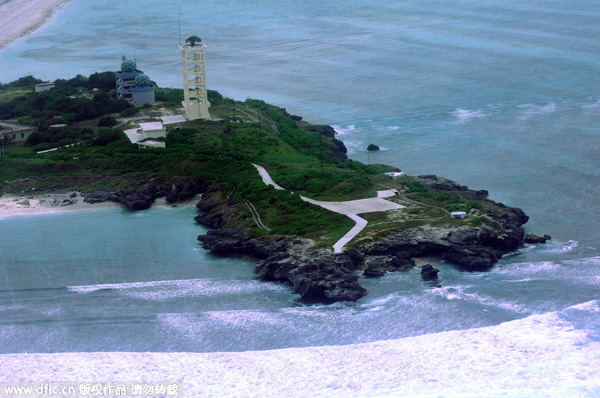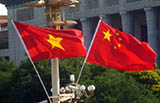Nation vigilant over Japan's moves
By Chen Mengwei (China Daily) Updated: 2015-11-21 07:10
 |
|
View of the Yongxing Island, part of the Xisha Islands in the South China Sea, 25 November 2011. [Photo/IC] |
China will be "highly vigilant" as Japan considers sending warships to accompany US vessels in the South China Sea, the Foreign Ministry said on Friday.
"Japan should remember and reflect upon history," Foreign Ministry spokesman Hong Lei said at a regular news conference in an obvious reference to Japan's history. "China will be highly vigilant against Japan's interference in the South China Sea issue, its military return to the South China Sea in particular."
Hong was responding to media reports that Japanese Prime Minister Shinzo Abe told US President Barack Obama on Thursday, on the sidelines of the APEC meeting in Manila, Philippines, that Japan is considering sending its Self-Defense Forces to join US patrols in the South China Sea.
Japan once invaded and occupied China's islands in the South China Sea during the World War II, Hong reminded journalists in his remarks. Those islands were recovered by China after Japan was defeated.
"China firmly opposes actions that threaten other country's sovereignty and security and move the region further toward militarization under the name of navigation and overflight freedom," Hong said.
"China is resolute in upholding navigational freedom in the South China Sea that all countries are entitled to under international law," the spokesman added. "There has never been any problem with navigational freedom in the South China Sea."
Abe also expressed support for a US-initiated move to claim so-called freedom of navigation in the South China Sea by sending warships into waters near China's islands starting in October, which has escalated tensions in the region.
"I am opposed to all unilateral attempts to change the status quo and escalate tensions," Abe was quoted by the Japan Times as saying when meeting Obama.
Obama said he and Abe shared "an interest in continuing to foster rule of law and supporting international norms in areas like freedom of navigation and maritime law".
Fan Jishe, a US studies researcher at the Chinese Academy of Social Sciences, said the real logic behind Japan's recent moves is to take advantage of the US to "borrow ship to sail out" into the South China Sea.






